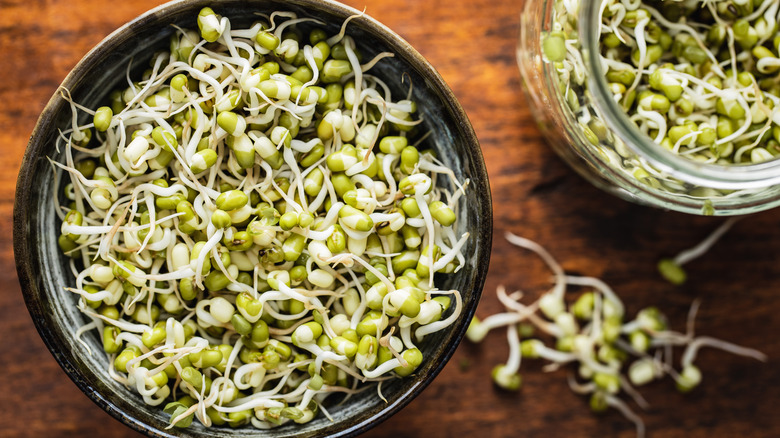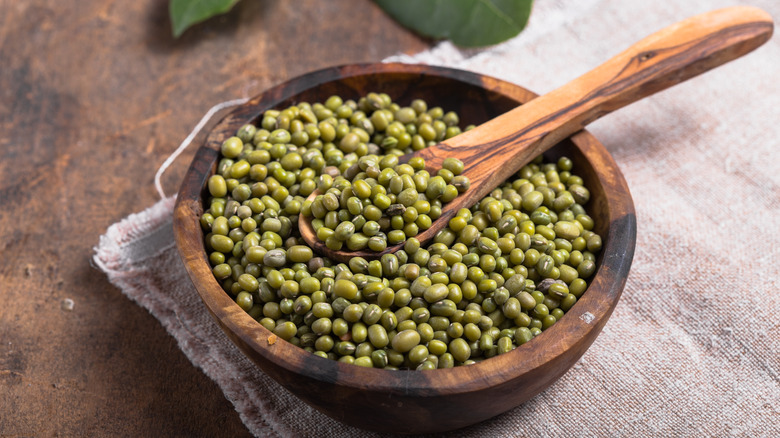What Are The Health Benefits Of Mung Beans?
The small, circular, green legume known as the mung bean can pack quite a punch when it comes to nutrition (via Pulses). Native to India, mung beans can be eaten in a variety of ways, including sprouted or unsprouted, dried, cooked, fermented, or consumed as flour or other products (per Chemistry Central Journal).
According to Healthline, mung beans are a great source of vitamins and minerals, such as fiber, folate, manganese, magnesium, and a host of B vitamins, amongst other nutrients. Not only that, but mung beans consist of up to 24% protein (via Chemistry Central Journal), making them among the top sources of plant-based protein (per Healthline) — that's good news for those who adhere to a vegetarian diet. However, depending on how mung beans are consumed, there may be slight variations in their nutritional value. For example, sprouted mung beans are lower in calories, yet higher in antioxidants and amino acids than their unsprouted peers.
Because mung beans are so dense in nutrients, some research suggests they may help fight off free radicals, reduce one's risk for cardiovascular disease, boost digestive health, and decrease blood pressure and blood sugar levels (via Healthline). Better yet, there are also some unique, lesser known benefits that mung beans have to offer, too.
How to incorporate mung beans into your next meal
While the research is minimal, a 2011 animal study published in PLOS ONE found that consuming mung bean soup may be an effective means of preventing heat stroke and other signs of heat stress. This is due to the presence of the antioxidants vitexin and isovitexin.
Additionally, Healthline suggests that mung beans may also have health benefits to offer those who are pregnant. Mung beans contain high amounts of folate, a nutrient that promotes healthy fetal development and may reduce the risk of birth defects. However, pregnant individuals interested in trying mung beans should stick to cooked beans and sprouts, as raw mung bean sprouts could pose a risk of bacterial infection.
As it turns out, eating mung beans may not be the only way to reap their benefits. According to Glamour, the antioxidants and phytonutrients found in mung beans have been purported to help alleviate acne, rashes, and cold sores when used in a face mask.
If you're unsure how to incorporate these powerful legumes into your next meal, MedicalNewsToday suggests adding a serving of boiled mung beans to dishes, such as salads, curries, or a tomato sauce.


